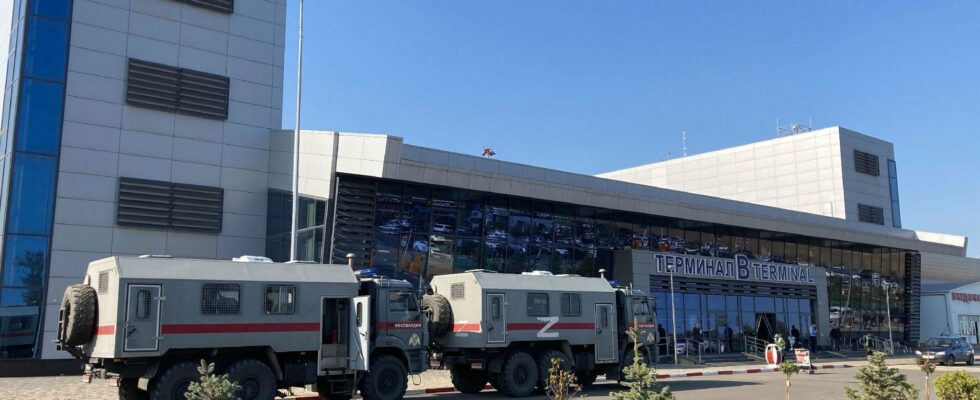Armed men attacked Orthodox churches and at least one synagogue in the Russian Caucasus on Sunday June 24, killing 19 people, including a priest, police officers and four civilians, authorities announced, denouncing “terrorist” acts.
What happened ?
The attacks took place in the capital of the Russian republic of Dagestan, Makhachkala, and the coastal city of Derbent. “Two Orthodox churches, a synagogue and a police checkpoint” were targeted, announced the Russian Anti-Terrorism Committee, cited by the Ria Novosti agency. Jewish representatives, including the Russian Jewish Congress, said a second synagogue was also burned. In total, these attacks against Orthodox churches and a synagogue left at least 19 people dead.
Authorities said a National Guard officer died, and another police officer died of his injuries. A total of 16 people, including 13 police officers, were injured and hospitalized, according to the ministry. Armed individuals also opened fire on a vehicle carrying police officers, injuring one of them, in Sergokala, a village located between Makhachkala and Derbent, the local Interior Ministry further clarified to Russian agencies. Synagogues in Derbent and Makhachkala were burned, according to the chairman of the public council of Jewish communities of the Russian Federation, Boruch Gorin.
Images, taken up by Russian media, show a building in flames, presented as a synagogue. In other videos, we can hear gunshots in the streets of Makhachkala, where a large police force has been deployed. The authenticity of these images could not immediately be verified by AFP.
Who are the perpetrators of these attacks?
For the moment, there is no information to determine the motivations or identities of the perpetrators of these attacks, which appear to be coordinated. The Russian Investigative Committee indicated that it had opened a criminal investigation into “terrorist acts”, without further details.
He added that “the active phase” of operations in Derbent and Makhachkala “has ended” and that “six bandits have been liquidated.” The authorities will try to find “all the members of these sleeper cells who prepared (the attacks) and who were prepared, including abroad,” he added.
Why did these attacks occur in the region?
Dagestan is a predominantly Muslim Russian region neighboring Chechnya, also close to Georgia and Azerbaijan. Anti-terrorist operations are regularly announced there by the Russian authorities. “Christian and Jewish religious sites in Dagestan are frequently targeted by extremists,” recalls the Washington PostQuoted by International mail. In October, riots hostile to Israel broke out at Makhachkala airport. A crowd of men had invaded its tarmac, amid tensions across the world linked to the conflict between Israel and the Palestinian Islamist movement Hamas, when a plane from Israel landed.
Russia has been targeted on multiple occasions by attacks and attacks claimed by the jihadist organization Islamic State (IS), even if its influence remains limited in the country. In March, an attack claimed by ISIS at Crocus City Hall, a concert hall in the Moscow suburbs, killed more than 140 people. Last weekend, several ISIS members were killed after taking two prison officers hostage in a prison in southern Russia, authorities said.
Russia faced an Islamist rebellion in the early 2000s in the Caucasus, a movement born from the first conflict against separatist Chechnya in 1994-1996. It had been defeated by Russian federal forces and in recent years, armed incidents there have been rare. Nearly 4,500 Russians, particularly from the Caucasus, fought alongside IS in Iraq and Syria, according to official figures.
What were the reactions in Russia?
The leader of Dagestan, Sergei Melikov, said on Sunday evening that “unknown persons had tried to destabilize society”. “We know who is behind these terrorist attacks and what objective they are pursuing,” he added later, without specifying who was in the sights but referring to the war in Ukraine. “We must understand that war comes to our homes too. We felt it, but today we face it,” he said.
Patriarch Kirill, head of the Russian Orthodox Church and fervent supporter of the Kremlin, assured that the “enemy” was seeking to destroy “inter-religious peace” in Russia. Its goal is to “plant the seeds of hatred”, he denounced, without naming those responsible. Three days of mourning have been declared in Dagestan, from Monday to Wednesday, the local administration said.
